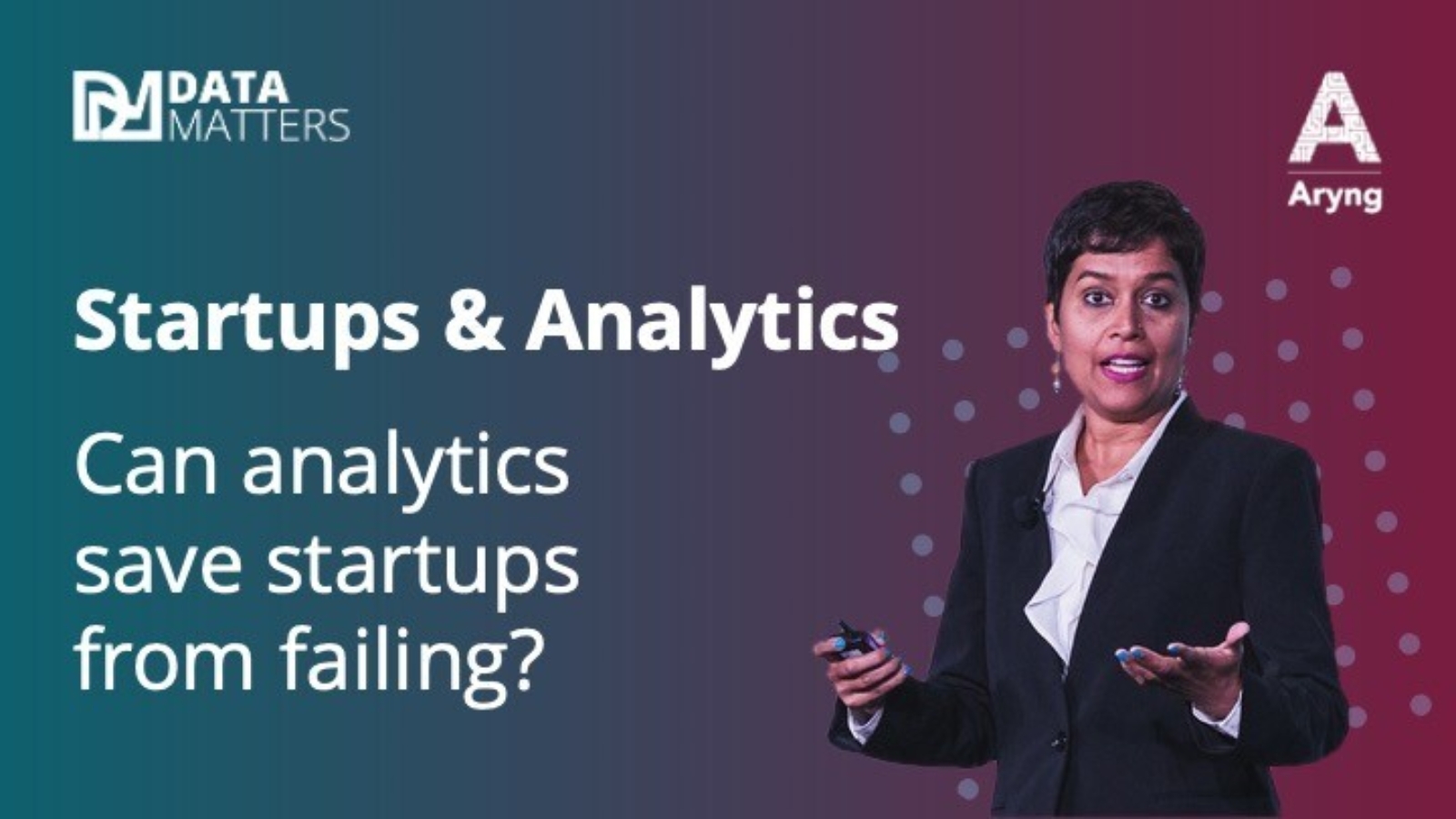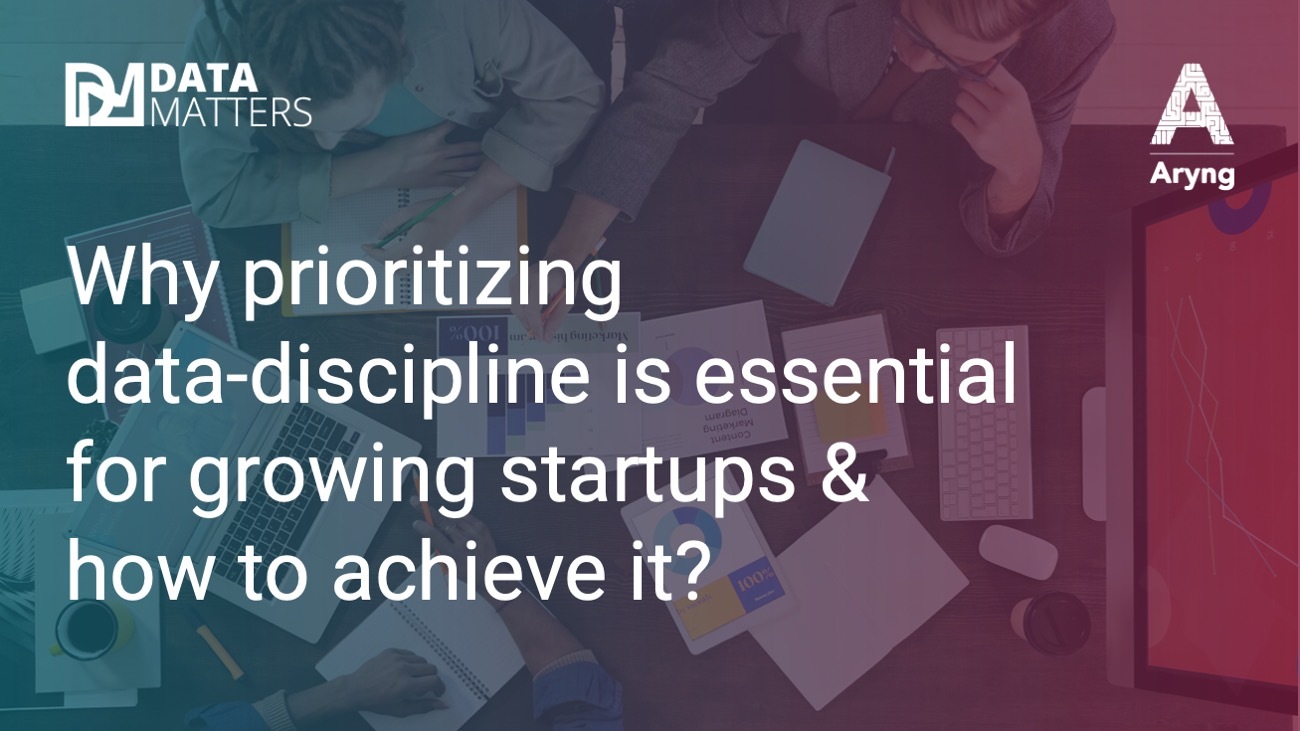Introduction
Starting a business is a risky endeavor, with many startups facing a high failure rate.
According to a study by the Bureau of Labor Statistics (BLS), approximately 20% of small businesses fail within their first year, and around 50% fail within the first five years.
 It’s a scary time for startups – funds have dried up, massive layoffs to contain costs, and many businesses are struggling to stay afloat. With the high failure rate of startups, it’s more important than ever for entrepreneurs to find ways to increase their chances of success.
It’s a scary time for startups – funds have dried up, massive layoffs to contain costs, and many businesses are struggling to stay afloat. With the high failure rate of startups, it’s more important than ever for entrepreneurs to find ways to increase their chances of success.
One potential solution is analytics. By using data and analytics, startups can gain valuable insights into their operations and make data-driven decisions that can improve their chances of success.
Through this article, we will explore how startups can use analytics to avoid common pitfalls, navigate the competitive landscape, and ultimately increase their chances of survival and growth.
We will also look at some real-world examples of how startups have used analytics to their advantage and the impact it has had on their business.
What is analytics and how can it be used to save a startup?
Analytics is the process of collecting, analyzing, and interpreting data in order to gain insights and make better decisions. It involves using statistical techniques, data visualization tools, and other methods to extract meaningful information from large sets of data.
In a startup setting, analytics can be used to track a wide range of data, including financial performance, customer behavior, marketing effectiveness, and operational efficiency.
One common type of data that startups can analyze is financial performance. By tracking key financial metrics, such as revenue, expenses, and profits, startups can gain a better understanding of their financial health and identify areas where they can improve.
For example, if a startup is struggling to turn a profit, it can use analytics to identify which products or services are not generating enough revenue to cover costs and make adjustments accordingly.

For example, if a startup finds that its target market is primarily composed of young, tech-savvy consumers, it can use this information to develop more innovative products or to use social media marketing to reach them.
Analyzing data can also help startups to improve their marketing and sales efforts.
By tracking data on the cost of customer acquisition and marketing campaigns ROAS (Return on Ad Spend), startups can identify which channels and strategies are most effective in reaching and converting customers in the most cost-effective manner and propel their growth.
In short, analytics can be a powerful tool for startups, allowing them to make data-driven decisions that can improve their chances of success. By analyzing a wide range of data, from financial performance to customer behavior, startups can gain valuable insights that can help them identify opportunities for growth and make strategic adjustments to their operations.
When Analytics Save Startups
In this section, we will take a closer look at some real-world examples of startups that have used analytics to their advantage and achieved success. These success stories demonstrate the powerful impact that analytics can have on a startup’s operations and growth.
- Pricing Analytics for a top Payment Services Startup
The client is a top B2B payments company that provides internet payment services on a subscription model, with multiple tiers of subscription ranging from a few hundred dollars per month to more than $25K per month.
They want to improve the two-year LTV of merchants by changing the monthly subscription plans – pricing and packaging, aligning the new plans in such a way that it incentivizes their monthly accounts to switch to the annual plan.
Aryng used the BADIR framework to align stakeholders from Product, Marketing, and Finance towards a common problem definition and area of optimization.
They developed a model for calculating the Life Time Value (LTV) of each account and a detailed model that helps in cost attribution to different merchant segments.
They also performed impact calculations on different pricing models to optimize the targeting of merchants in particular segments and prevent a reduction in the overall LTV of the business.
Results showed that using detailed sensitivity analysis to target high-growth clients, new pricing and packaging minimized max loss to $1.7M.
Had the product team just gone with the pricing that arrived based on competitive analysis, the losses would run to a staggering $5M+.
2. Experimentation Strategy for an Internet App Startup
The client is a top internet app company that provides location tracking services and safety features for families on a freemium app.
The app offers limited functionality to free users and an option to go for a 7-day trial before going premium for incremental features and usage.
The client wants to improve the two-year LTV of users by affecting the trial rate and premium retention. They wanted to understand how various changes to their app affected users’ propensity to start a free “trial” of its premium plans, convert to a paying customer, and stay on the paid plan for longer.
 Aryng used the BADIR framework to align stakeholders from Product, Marketing, and Finance towards a common problem definition and layout Experiment plans, and sampling strategy. They designed a series of experiments to test how changes in the UI affected user LTV.
Aryng used the BADIR framework to align stakeholders from Product, Marketing, and Finance towards a common problem definition and layout Experiment plans, and sampling strategy. They designed a series of experiments to test how changes in the UI affected user LTV.
The first two experiments were designed to understand how the package and premium feature messaging affected user trials, and this change improved the trial rate for new users by 50%.
The subsequent experiments were designed around user experience and tested how the ease of purchase flow, prominence of a membership section on the app, and post-purchase education on the premium features available made the purchase decision easier for the user. These changes improved the trial rate for all users by 35%.
Results showed that this created an opportunity for growth in revenue by adding $14M+ in 2-year value per yearly cohort of users.
These success stories demonstrate the powerful impact that analytics can have on a startup’s operations and growth.
By leveraging the power of data and analytics, these startups were able to gain valuable insights and make data-driven decisions that helped them achieve success.
The limitations of analytics
While analytics can be a powerful tool for startups, it is important to acknowledge that it is not a magic solution and cannot guarantee success. There are several limitations to using analytics that startups should be aware of.
One limitation is the need for quality data. In order to gain valuable insights from analytics, startups must have access to accurate, complete, and relevant data.
However, collecting and maintaining high-quality data can be difficult and time-consuming, and startups may not always have the resources or expertise to do so.

SSOT Image Credits: https://www.vistaprojects.com/blog/what-is-single-source-of-truth-ssot/
For example, a startup may collect data on customer demographics but may not have data on their purchase behavior, which makes it difficult to analyze customer behavior and make data-driven decisions. Some but not all of these limitations can be addressed by building a Single Source of Truth (SSOT).
Read: Why do you need a Single Source of Truth?
Another limitation is the potential for bias in the analysis. When analyzing data, it is important to be aware of the potential for bias and to take steps to minimize it.
For example, using past data to predict future trends can be helpful in identifying patterns and insights.
However, it can also cause bias as it can only predict future trends based on past trends, thus missing any new trends.
Additionally, if the data is collected in a biased manner or analyzed by someone with a personal bias, it can lead to inaccurate conclusions.
An example of this is if a company’s data is collected through online surveys and the survey is only sent to people who have previously purchased from the company, it will not represent the customer base who are online, leading to a biased analysis.
Another limitation is that analytics can only predict what has happened before. If something has never happened before, it will not produce data, which makes it difficult to predict.
An example of this is the COVID-19 pandemic, which had never happened before, and it was difficult to predict its impact on the economy and businesses.
In conclusion, while analytics can be a valuable tool for startups, it is important to be aware of its limitations and use it in conjunction with other strategies.
Startups should invest in quality data, be aware of potential biases, and always be prepared for the unknown.
Conclusion
In conclusion, this article explored the role that analytics can play in helping startups increase their chances of success.
We discussed the various ways that startups can use analytics to track financial performance, customer behavior, marketing effectiveness, and operational efficiency.
By leveraging the power of data and analytics, entrepreneurs can gain valuable insights into their operations and make data-driven decisions that can improve their chances of success.
However, it’s important to remember that analytics is not a magic solution and cannot guarantee success for a startup.
There are several limitations to using analytics, such as the need for quality data, the potential for bias in the analysis, and the fact that analytics can only predict what has happened before.
Startups should invest in quality data and processes via SSOT, be aware of potential biases, and always be prepared for the unknown.
In summary, while analytics can certainly be a useful tool for startups, it is only one factor among many that can contribute to success.
Startups should consider the substantial role that analytics could play in their own operations and be mindful of its limitations. By doing so, they can use analytics to gain valuable insights and make data-driven decisions that can improve their chances of success.
We at Aryng are focused on helping startups harness the power of data and deliver quick & cost-effective solutions for driving real business impact.










